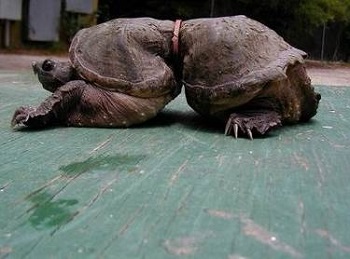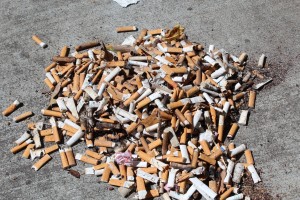Pledge to Meet the Challenge
Pledge to Keep San Rafael Clean!
 For over 50 years concerned Americans have been trying to reduce litter in our communities. And yet the problem persists in our throw-away society. Litter accumulated across U.S. highways in the ’50s and ’60s, the discards and byproducts of new industries, products, and services that emerged after World War II. Early campaigns called on people to stop being “litterbugs.” The first Earth Day in 1971 kicked off new efforts to raise awareness about the issue. Join San Rafael Clean in its grassroots effort to change behavior and clean up our community. Just pledge to pick it up!
For over 50 years concerned Americans have been trying to reduce litter in our communities. And yet the problem persists in our throw-away society. Litter accumulated across U.S. highways in the ’50s and ’60s, the discards and byproducts of new industries, products, and services that emerged after World War II. Early campaigns called on people to stop being “litterbugs.” The first Earth Day in 1971 kicked off new efforts to raise awareness about the issue. Join San Rafael Clean in its grassroots effort to change behavior and clean up our community. Just pledge to pick it up!
Plastic
 Most of what we eat, drink, or use in any way comes packaged in plastic—a material designed to last forever, yet used for products that we throw away. Plastic trash falls from uncovered trucks, spills out of trashcans, or is tossed carelessly. Much of the plastic waste we generate on land flows into our oceans through storm drains and waterways.
Most of what we eat, drink, or use in any way comes packaged in plastic—a material designed to last forever, yet used for products that we throw away. Plastic trash falls from uncovered trucks, spills out of trashcans, or is tossed carelessly. Much of the plastic waste we generate on land flows into our oceans through storm drains and waterways.
In the ocean, plastic breaks into increasingly smaller particles, but never disappears. Whales, sea turtles, and fish ingest or get caught in plastic, leading to starvation and death.
Plastic particles in oceans also act as sponges for contaminants such as PCBs, DDT and other pesticides. We don’t yet know the human health impacts of these toxic chemicals in the marine food chain. Learn more.
Cigarette Litter
 Cigarettes are the most littered item on earth, with several trillion cigarette butts littered worldwide each year! Made of cellulose plastic, butts never biodegrade, and almost all get carried with the wind or water into storm drains and eventually into creeks and the Bay.
Cigarettes are the most littered item on earth, with several trillion cigarette butts littered worldwide each year! Made of cellulose plastic, butts never biodegrade, and almost all get carried with the wind or water into storm drains and eventually into creeks and the Bay.
Cigarette butts are full of toxins that leach into the soil and water, harming living organisms that ingest or come into contact with them. Birds and aquatic animals can mistake the butts as food, which can result in death.
In San Rafael, every two to three days 10,000 cigarette butts are littered on the streets. Cigarette litter degrades our environment and its cleanup represents a major cost for the city’s public works department. Learn more.
